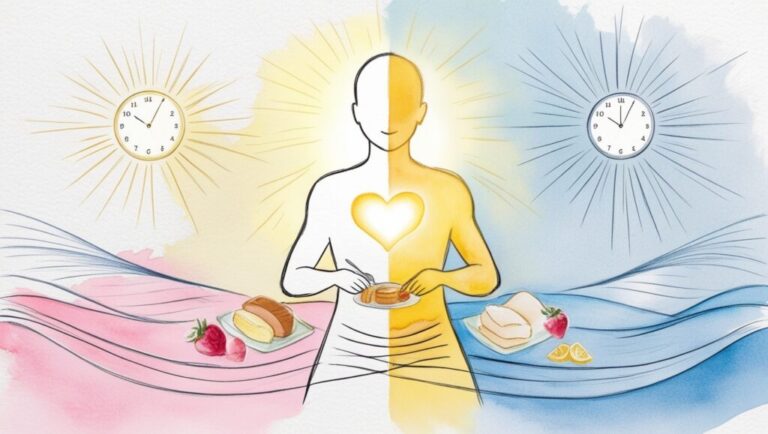Do longer naps improve heart health in adults?
Do Longer Naps Improve Heart Health in Adults?
Okay, be honest — how many times have you told yourself, “I’ll just close my eyes for ten minutes” and then woken up two hours later feeling like you just got hit by a time-traveling truck?
Yeah, we’ve all been there.
But hey — what if I told you that your glorious, borderline-too-long nap might actually be doing your heart some good? Not just your mood, or your focus, but your actual, literal heart health. Wild, right?
Let’s talk about whether longer naps can actually help your heart — or if they just make you feel like a groggy potato afterward.
First of All, What Do We Mean by “Longer Naps”?
So here’s the deal:
A short nap is usually anything between 10–30 minutes. That’s the sweet spot for feeling refreshed without slipping into a deep sleep cycle.
A long nap, on the other hand, means over 60 minutes, sometimes even up to 90 minutes — which is basically a full sleep cycle.
Long naps sometimes get a bad rap, especially because they can make you feel groggy or mess with your nighttime sleep. But when it comes to heart health, things might not be so black and white.
The Heart-Nap Connection: What Science Says
Okay, here’s the interesting part.
Several studies have looked at how daytime naps affect cardiovascular health. The results are kind of mixed — but some data suggest longer naps may help reduce the risk of heart disease, especially in certain groups.
🔍 A few key findings:
A study in Switzerland found that people who napped once or twice a week had a lower risk of heart problems like heart attacks and strokes.
Some research from Greece found that men who took regular midday naps had a lower risk of dying from heart disease — especially if they were working stressful jobs.
But other studies suggest that naps longer than an hour — especially if taken daily — could be linked to increased risks of heart issues and even diabetes. Sooo… mixed bag.
Basically, it seems like naps are like pizza: great in moderation, maybe not so great if you overdo it.




But Why Would Napping Help the Heart?
Let’s break it down. Imagine your body as a car engine, and your heart is the part that’s always running, even when you’re parked.
When you nap, especially during the day, you’re giving that engine a chance to cool down. Here’s how that helps your heart:
Reduces stress: Naps can lower your cortisol levels (that’s your stress hormone). Less stress = less pressure on the heart.
Lowers blood pressure: Some studies show that even a 45-minute nap can help drop your blood pressure.
Improves heart rate variability (HRV): That’s a fancy way of saying your heart is more chill and adaptive. Higher HRV is a sign of better heart health.
Helps recovery from poor nighttime sleep: If you didn’t sleep well the night before, a nap might help reduce the negative effects on your heart.
In short: rest gives your heart a break. And just like your brain needs a timeout from overthinking, your heart sometimes needs one from overpumping.
But Wait — Are There Any Downsides?
Oh yeah, it’s not all dreamy clouds and soft blankets. There are a few caveats when it comes to napping:
Long naps can mess with your night sleep, especially if you’re doing them late in the afternoon. That can throw off your circadian rhythm (your body’s internal clock).
Grogginess, aka sleep inertia, can hit hard after long naps. You wake up confused, hungry, and doubting what year it is.
If you nap too often or too long, it might be a sign of an underlying health problem — like sleep apnea, depression, or poor nighttime sleep habits. If you’re napping all the time, it’s worth checking in with a doctor.
Basically, if you’re napping because you need to every single day, that’s different than if you’re napping because you choose to. Your body might be waving a little red flag.
So What’s the Sweet Spot?
Most sleep experts say:
Keep naps around 20–30 minutes if you need a quick refresh.
If you’re going to take a longer nap (like 60–90 minutes), try to do it earlier in the day and make sure it doesn’t replace your actual sleep at night.
Listen to your body — if you feel great after a long nap and you’re sleeping fine at night, you’re probably doing fine.
Also, side note: people who take siestas (those legendary afternoon naps in Mediterranean cultures) have some pretty solid heart health stats overall. So maybe they’re onto something.
The Gentle Conclusion
So, can longer naps improve heart health in adults?
Yes — in some cases, they totally can. Especially if they help you lower stress, recover from poor sleep, or balance out your body’s natural rhythms.
But like most good things in life (chocolate, Netflix, overthinking), they’re best in moderation.
If you’re healthy, sleeping okay at night, and just enjoying a longer nap now and then? Enjoy it. Your heart might just thank you.
But if you’re relying on long naps daily just to function, it might be time to look at what’s going on behind the scenes. Sleep is like a mirror — it reflects what your body’s trying to tell you.
Now go take that nap. Just don’t forget to set an alarm 😉
Related Articles from EdgyThoughts.com:
Why Emotional Intelligence Is Finally Being Taught in Schools
https://edgythoughts.com/are-schools-teaching-emotional-intelligence-now
Is VR the Future of Classroom Learning?
https://edgythoughts.com/is-vr-the-future-of-classroom-learning
External Resource:
More info on how sleep and napping influence heart health:
https://en.wikipedia.org/wiki/Nap
How Does AI Generate Human-Like Voices? 2025
https://edgythoughts.com/how-does-ai-generate-human-like-voices-2025/
Why are irrational numbers non-repeating decimals?
https://edgythoughts.com/why-are-irrational-numbers-non-repeating-decimals/



